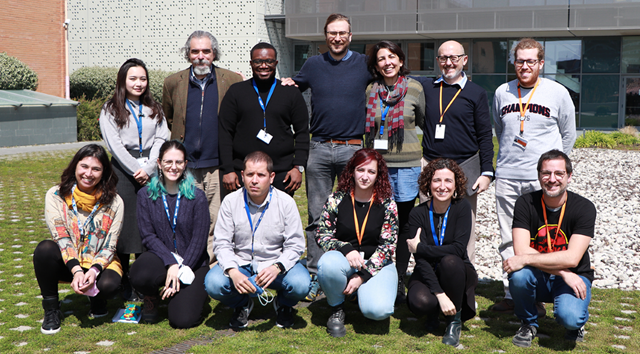COVID-19 vaccination in people with HIV, a pending issue
Two studies by CEEISCAT with the PISCIS cohort show that people living with HIV have been less vaccinated with the full initial regimen against COVID-19

In December, the journal Vaccines published an analysis of COVID-19 vaccination coverage among people with HIV in Catalonia between December 2020 and July 2022. The article, resulting from a study funded by the Fundació La Marató de TV3 and led by the Centre for Epidemiological Studies on HIV/AIDS and STI of Catalonia (CEEISCAT), a group from the Germans Trias i Pujol Research Institute (IGTP), in collaboration with researchers from the PISCIS Cohort group, evaluates the primary, monovalent, and booster doses. This research aims to develop concrete action plans tailored to specific profiles to facilitate and promote vaccination.
The study included a sample of over 200,000 individuals, 18,330 of whom have HIV and were vaccinated against COVID-19. The researchers observed a lower rate of complete primary vaccination schedule in people living with HIV (78.2%) compared to those without this condition (81.8%), with the difference being more pronounced among migrant populations. However, people living with HIV received more booster doses than the rest.
The authors identified several factors that may contribute to the lower complete vaccination rates: having a previous diagnosis of SARS-CoV-2, the status of HIV infection, being a migrant, or having a complicated socioeconomic situation. These factors reflect barriers to vaccine access and healthcare.
The analysis has helped identify patterns and contexts that encourage vaccination against SARS-CoV-2 among people living with HIV, as well as determining the need to improve vaccine access and address the hesitancy of vulnerable populations in taking the doses, highlighting their efficacy and safety.
The gap widens among migrant populations
The same group of researchers has published another article in the Open Forum Infectious Diseases journal, this time focusing on migrant individuals with HIV. The findings indicate that these individuals (over 3,000 in the sample) have undergone fewer SARS-CoV-2 tests, yet they have a similar cumulative diagnosis rate as local natives. Their vaccination rate, both in terms of the complete schedule and booster doses, is lower compared to those born in Catalonia. In contrast, there were more hospitalisations and admissions to the Intensive Care Unit (ICU) among migrants, even with similar durations of stays and mortality rates. Moreover, having two or more comorbidities in migrant individuals has been associated as a risk factor for severe COVID-19.
The study suggests possible impediments that could justify these results, such as economic inequalities, lack of information, structural discrimination, language barriers, or distrust in the healthcare system. With this data, strategies are expected to be developed to reach the migrant population and promote vaccination, as it is crucial for protecting the individual and curbing future epidemics at a social level.
Reference
Nomah DK, Reyes-Urueña J, Alonso L, Díaz Y, Moreno-Fornés S, Aceiton J, Bruguera A, Martín-Iguacel R, Imaz A, Gutierrez MdM, et al. Comparative Analysis of Primary and Monovalent Booster SARS-CoV-2 Vaccination Coverage in Adults with and without HIV in Catalonia, Spain. Vaccines. 2024; 12(1):44. DOI: 10.3390/vaccines12010044
Nomah D.K, Díaz Y, Bruguera A, Moreno-Fornés S, Aceiton J, Reyes-Urueña J, Llibre J.M, Falcó V, Imaz A, Fanjul F.J, Peraire J, Deig E, Domingo P, Inciarte A, Casabona J, Miró J.M, the PISCIS study group. Disparities in COVID-19 Clinical Outcomes and Vaccination Coverage Among Migrants with HIV in the PISCIS Cohort: A Population-Based Propensity Score-Matched Analysis. Open Forum Infectious Diseases, 2024;, ofad693, DOI: 10.1093/ofid/ofad693
